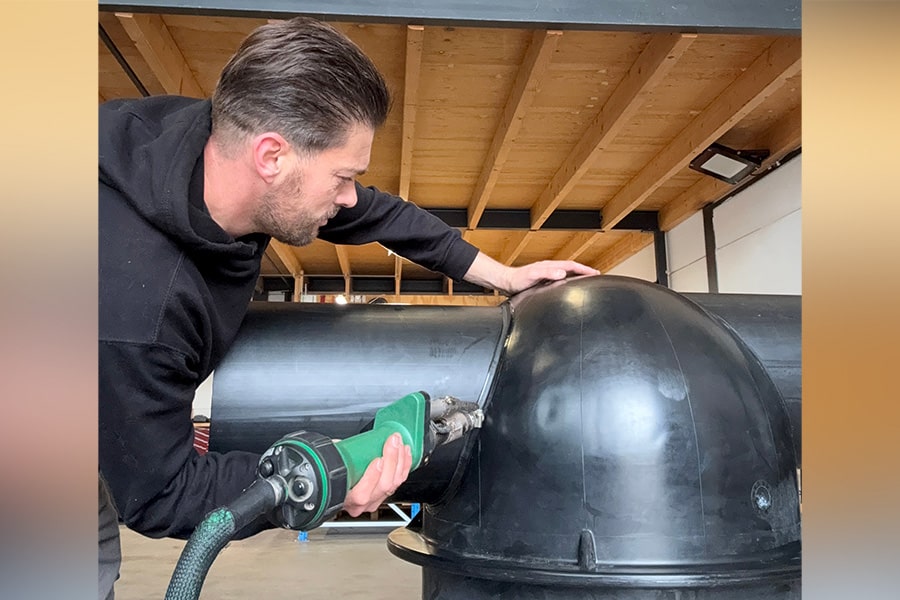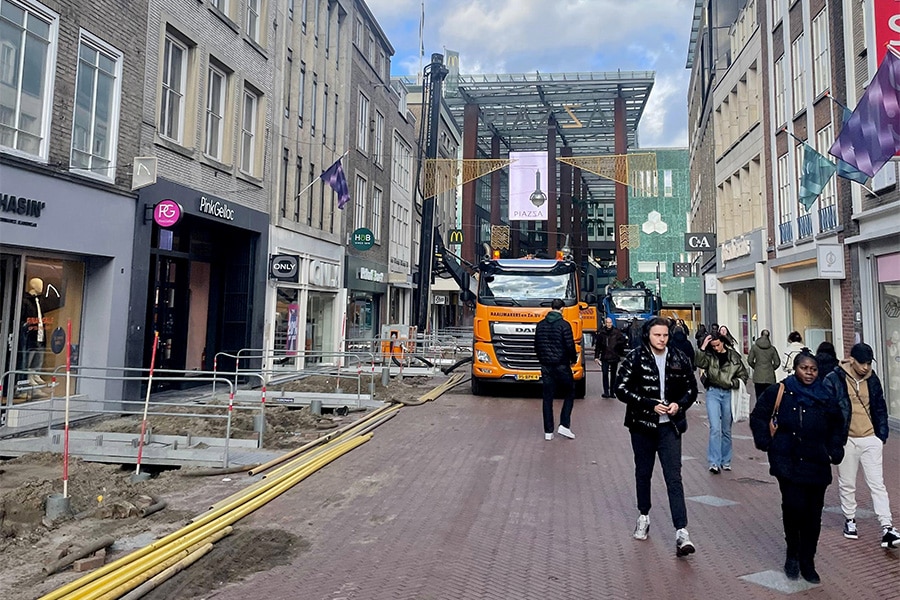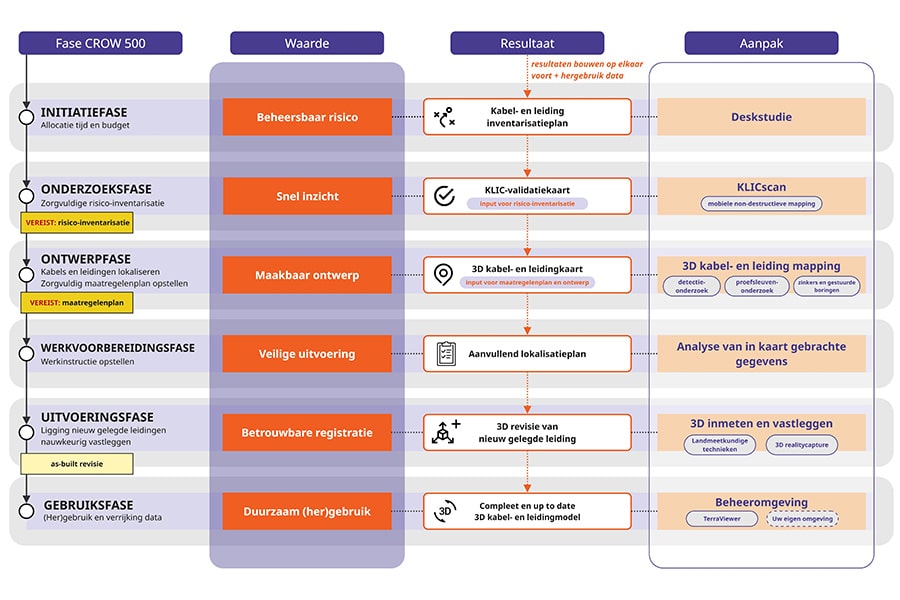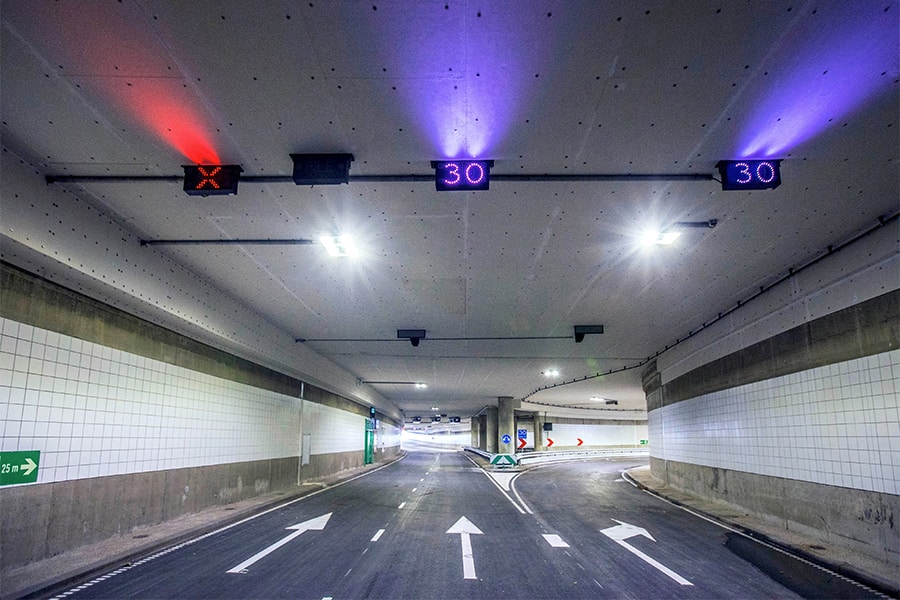
Innovative smart retention and infiltration system for Kerelsplein in Roeselare
In collaboration with Aquafin and the city of Roeselare, Aggéres will build an innovative urban retention and infiltration basin on the Kerelsplein, an urban sports and playground with various facilities on the outskirts of Roeselare. By retaining, reusing and infiltrating water, the basin combines multiple functions. "Our retention and infiltration system also speeds up the construction period and thus significantly reduces the construction cost," says Oliver Femont, Aggéres' business manager.
Aggéres saw the light of day in 2010 when Oliver Femont and his brother decided to find an answer for people who regularly experience floods and flooding. Oliver Femont: "The heavy flooding around the Dender Valley at the time got us thinking. Surely there had to be a better tool than handing out sandbags - too late? At that time, no company in the Benelux appeared to specialize in an efficient solution for private individuals. We then started from scratch."
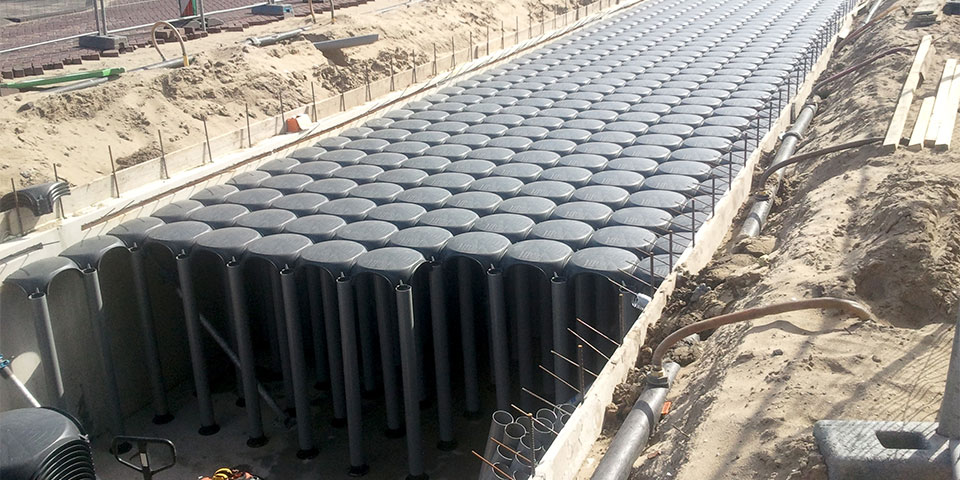
Self-closing dam & firewater barriers
Soon Aggéres came up with a unique, licensed product: a self-closing water barrier. "In short, a wall that rises from the ground, without electrical assistance or manpower," Oliver Femont clarifies. "If the water is too high, the basin fills and the wall rises. For Rijkswaterstaat in the Netherlands, we already realized the longest flexible water barrier in the world in this way, and in Antwerp at the Royersluis we will soon build an even longer one for the Oosterweel connection. With our self-closing weir we can help private individuals with a bulkhead for the front door, but also be of service to governments for gigantic dike raising projects."
If you can keep water out, you can keep it in, thought Oliver Femont. And so about five years ago, Aggéres developed firewater barriers, which are required to be installed near the fire extinguishing system in the chemical industry and in certain storage sheds. Oliver Femont: "When the extinguishing system catches fire, the barriers automatically barricade all the gates. We have already supplied our extinguishing water barriers to H. Essers and Coca Cola, among others."
Retention and infiltration basin
The third - and most recent - pillar on which Aggéres relies is that of an innovative retention and infiltration basin. Oliver Femont: "The fact that water flooding goes hand in hand with the drought problem made us think again. It was the impetus to develop a system that avoids flooding on the one hand and encourages infiltration on the other. The goal is to not discharge a single drop of rainwater uselessly and keep everything on site. We developed a unique basin that will automatically infiltrate when the basin is too full. And it gets even more ingenious because thanks to smart control, the basin can predict severe storms and thus proactively infiltrate and only discharge in extreme need. This way, the basin creates a buffer volume and the infiltrated soil is prepared for heavy rainfall."
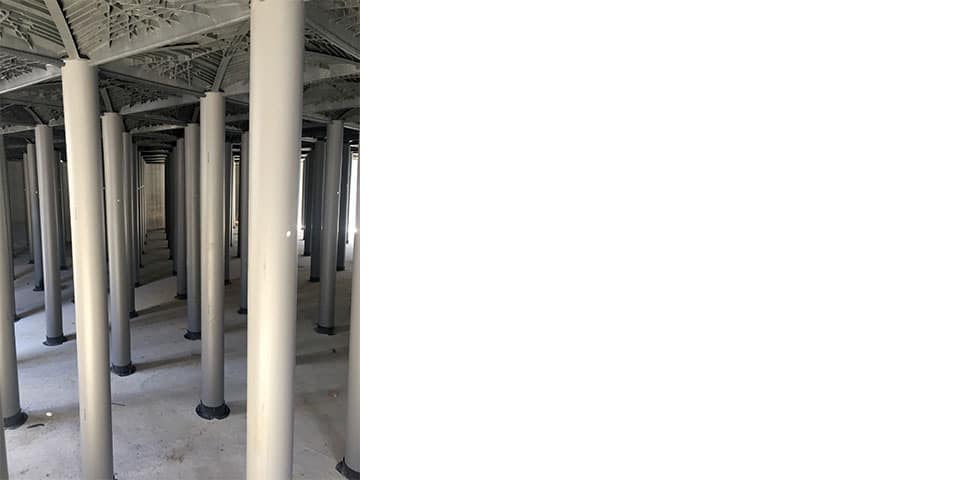
Guy's Square
In the spring of 2019, this system was successfully pitched at Aquafin, which found an ideal pilot project with the Kerelsplein in Roeselare. There, next year, flooding in the vicinity of the Collievijverbeek will be addressed by completely disconnecting rainwater - with a paved area of about 11,000 square meters - from the stream. Oliver Femont: "An underground concrete basement of 500 m³ will be built. That basement normally has two zones, a storage zone and an infiltration zone, but given the very dry soil on the site, as far as infiltration is concerned, we are opting for drainage pipes that will form a huge infiltration field under the soccer field. The stored water will also be reused in the gymnasium, party rooms, other classrooms and for watering the soccer field. Furthermore, there is also the plan to create an educational water playground."
The overall system that will be realized in Roeselare - the start of works is scheduled for spring 2021 - is a first. "It is an innovative and very efficient system. Moreover, it can be installed in a very short period of time, which significantly reduces the construction cost. In Roeselare, we expect to see it completely ready in about three weeks. I am convinced that for Belgium, and by extension all of Europe, it can be a nice reference project," concludes Oliver Femont.
